第97章
Miss Van Siever, who at this time had perhaps reached her twenty-fifth year, was certainly a handsome young woman. She was fair and large, bearing no likeness whatever to her mother. Her features were regular, and her full, clear eyes had a brilliance of their own, looking at you always steadfastly and boldly, though very seldom pleasantly. Her mouth would have been beautiful had it not been too strong for feminine beauty. Her teeth were perfect--too perfect--looking like miniature walls of carved ivory. She knew the fault of this perfection, and showed her teeth as little as she could. Her nose and chin were finely chiselled, and her head stood well upon her shoulders. But there was something hard about it all which repelled you. Dalrymple, when he saw her, recoiled from her, not outwardly, but inwardly. Yes, she was handsome, as may be horse or a tiger; but there was about her nothing of feminine softness. He could not bring himself to think of taking Clara Van Siever as the model that was to sit before him for the rest of his life. He certainly could make a picture of her, as had been suggested by his friend, Mrs Broughton, but it must be as Judith with the dissevered head, of as Jael using her hammer over the temple of Sisera. Yes--he thought she would do as Jael; and if Mrs Van Siever would throw him a sugar-plum--for he would want the sugar-plum, seeing that any other result was out of the question --the thing might be done. Such was the idea of Mr Conway Dalrymple respecting Miss Van Siever--before he led her down to dinner.
At first he found it hard to talk to her. She answered him, and not with monosyllables. But she answered him without sympathy, or apparent pleasure in talking. Now the young artist was in the habit of being flattered by ladies, and expected to have his small talk made very easy for him. He liked to give himself little airs, and was not generally disposed to labour very hard at the task of making himself agreeable.
'Were you ever painted yet?' he asked after they had both been sitting silent for two or three minutes.
'Was I ever--painted? In what way?'
'I don't mean rouged, or enamelled, or got up by Madame Rachel; but have you ever had your portrait taken?'
'I have been photographed of course.'
'That's why I asked you if you had been painted--so as to make some little distinction between the two. I am a painter by profession, and do portraits.'
'So Mrs Broughton told me.'
'I am not asking for a job, you know.'
'I am quite sure of that.'
'But I should have thought you would have been sure to have sat to somebody.'
'I never did. I never thought of doing so. One does those things at the instigation of one's intimate friends--fathers, mothers, uncles, and aunts and the like.'
'Or husbands, perhaps--or lovers?'
'Well, yes; my intimate friend is my mother, and she would never dream of such a thing. She hates pictures.'
'Hates pictures!'
'And especially portraits. And I'm afraid, Mr Dalrymple, she hates artists.'
'Good heavens; how cruel! I suppose there is some story attached to it.
There has been some fatal likeness--some terrible picture--something in her early days.'
'Nothing of the kind, Mr Dalrymple. It is merely the fact that her sympathies are with ugly things, rather than with pretty things. I think she loves the mahogany dinner-table better than anything else in the house; and she likes to have everything dark, and plain, and solid.'
'And good?'
'Good of its kind, certainly.'
'If everyone was like your mother, how would the artist live?'
'There would be none.'
'And the world, you think, would be none the poorer?'
'I did not speak for myself. I think the world would be very much the poorer. I am very fond of ancient masters, though I do not suppose that I understand them.'
'They are easier understood than the modern, I can tell you. Perhaps you don't care for modern pictures?'
'Not in comparison, certainly. If that is uncivil, you have brought it on yourself. But I do not in truth mean anything derogatory to the painters of the day. When their pictures are old, they--that is the good ones among them--will be nice also.'
'Pictures are like wine, and want age, you think?'
'Yes, and statues too, and buildings above all things. The colours of new paintings are so glaring, and the faces are so bright and self-conscious, that they look to me when I go to the exhibition like coloured prints in a child's new picture-book. It is the same thing with buildings. One sees all the points, and nothing is left to the imagination.'
'I find I have come across a real critic.'
'I hope so, at any rate, I am not a sham one' and Miss Van Siever as she said this looked very savage.
'I shouldn't take you to be sham in anything.'
'Ah, that would be saying a great deal for myself. Who can undertake to say that he is not a sham in anything?'
As she said this the ladies were getting up. So Miss Van Siever also got up, and left Mr Conway Dalrymple to consider whether he could say or could think of himself that he was not a sham in anything. As regarded Miss Clara Van Siever, he began to think that he could not object to paint her portrait, even though there might be no sugar-plum. He would certainly do it as Jael; and he would, if he dared, insert dimly in the background some idea of the face of the mother, half-appearing, half-vanishing, as the spirit of the sacrifice. He was composing the picture, while Mr Dobbs Broughton was arranging himself and his bottles.